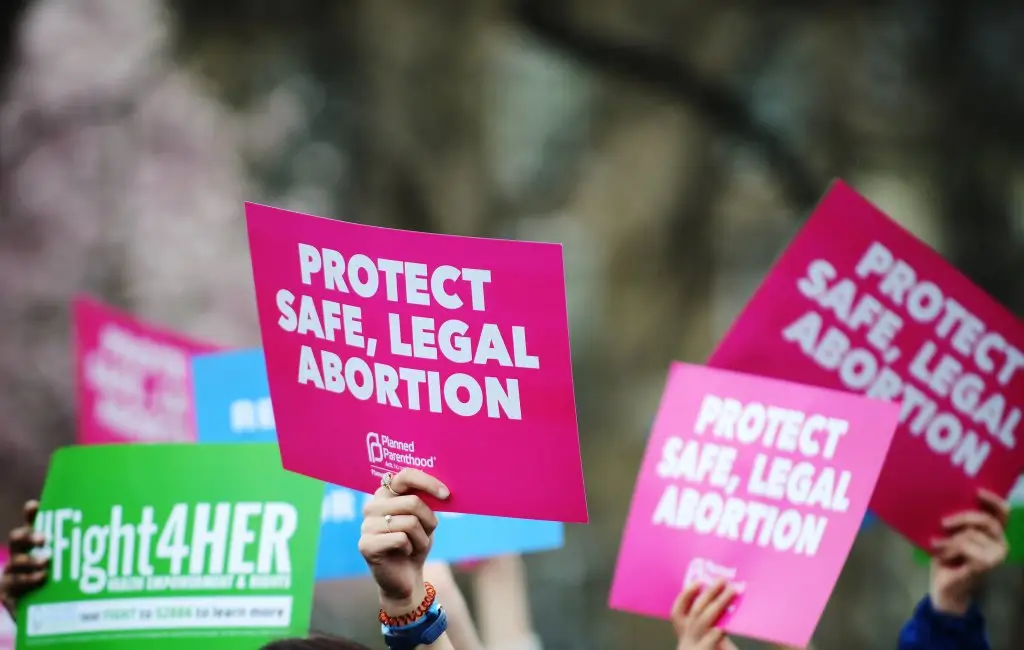Since the landmark Supreme Court decision in Dobbs v. Jackson Women’s Health Organization (2022), Arkansas has implemented a near-total ban on abortion. This article provides a comprehensive overview of the current state of abortion laws in Arkansas as of June, 2024.
The Arkansas Human Life Protection Act
Following the Dobbs decision, Arkansas’s pre-existing trigger ban, the Arkansas Human Life Protection Act, went into effect in June 2022. This law prohibits abortion at all stages of pregnancy with a single exception: to save the life of the pregnant woman in a medical emergency.
The law defines “medical emergency” narrowly, encompassing only conditions that directly threaten the woman’s life or a major bodily function. Pregnancies resulting from rape or incest are not exceptions under current Arkansas law.
Legal Challenges and Legislative Activity
The Arkansas Human Life Protection Act has been challenged in court. However, as of June 2024, the law remains in effect. In May 2024, a federal court allowed a lawsuit challenging the law to proceed, but the ultimate outcome remains uncertain [ACLU of Arkansas].
Despite the near-total ban, there have been legislative efforts to amend the law in 2024. Notably, Senate Bill 35 proposed adding exceptions for rape and incest, but it wasn’t passed [ACLU of Arkansas]. This suggests some ongoing debate within the Arkansas legislature regarding the scope of the ban.
Additional Restrictions on Abortion Access
Beyond the near-total ban, Arkansas has established several other laws that restrict abortion access:
- Mandatory Waiting Period: Women seeking an abortion are required to wait 48 hours after receiving mandatory counseling from a physician before the procedure can be performed.
- Parental Consent: Minors seeking an abortion must obtain written consent from a parent or legal guardian.
- Ultrasound Requirement: Women seeking an abortion are required to undergo an ultrasound, even if medically unnecessary.
- State Funding Ban: Arkansas prohibits the use of state funds to pay for abortions except in the limited cases where the mother’s life is at risk.
- Telehealth Restrictions: Medication abortion, which uses pills to terminate a pregnancy, cannot be obtained through telehealth services in Arkansas. The woman must have an in-person visit with a physician.
Impact on Women’s Health
The near-total ban on abortion in Arkansas is likely to have a significant negative impact on women’s health. With limited access to safe and legal abortion services, women facing unwanted pregnancies may resort to unsafe methods, which can lead to serious health complications, including death.
Additionally, the ban may disproportionately affect low-income women and women of color who may have difficulty traveling to other states to obtain abortion services.
Resources for Women in Arkansas
While abortion access in Arkansas is severely restricted, there are still resources available to women facing unwanted pregnancies. These resources include:
- Pregnancy resource centers: These centers may provide counseling, adoption referrals, and other forms of support to women facing unplanned pregnancies. However, it is important to note that some pregnancy resource centers may not provide information about all pregnancy options, including abortion.
- National Network of Abortion Funds: This organization provides financial assistance to women seeking abortions.
- Abortion Finder: This website provides information about abortion clinics and services in Arkansas and surrounding states.
Looking Ahead: An Uncertain Future
The future of abortion rights in Arkansas remains uncertain. Legal challenges to the near-total ban are ongoing, and the legislature may continue to debate the issue. Additionally, the national political landscape could play a role in shaping abortion access in Arkansas.
The outcome of future elections could determine whether the state’s near-total ban remains in place or if it is modified or repealed.
Arkansas Abortion Laws (as of June 15, 2024)
| Restriction | Description |
|---|---|
| Near-Total Ban | Abortion is illegal at all stages of pregnancy except to save the life of the pregnant woman in a medical emergency. |
| Mandatory Waiting Period | Women must wait 48 hours after receiving counseling before an abortion. |
| Parental Consent | Minors must obtain parental consent for an abortion. |
| Ultrasound Requirement | Women must undergo an ultrasound before an abortion. |
| State Funding Ban | State funds cannot be used to pay for abortions except in limited cases. |
| Telehealth Restrictions | Medication abortion cannot be obtained through telehealth services. |
Important Considerations
- Date of Effect: It’s important to remember that the trigger ban in Arkansas went into effect in June 2022. This means the near-total ban has been in place for over a year as of June 2024.
- Impact on Providers: The near-total ban has significantly impacted abortion providers in Arkansas. Many clinics have closed or shifted their focus to other reproductive healthcare services due to the restrictions. This can create challenges for women seeking abortion services and may lead to longer wait times and travel distances for those needing to access care out-of-state.
- The Role of Advocacy Groups: Organizations like the ACLU of Arkansas and Planned Parenthood are actively fighting for reproductive rights in Arkansas. They provide legal resources, education, and advocacy efforts to challenge restrictive abortion laws.
- The Potential for Change: While the current landscape in Arkansas is restrictive, public opinion on abortion rights is complex. There may be opportunities for future legislative changes or ballot initiatives to expand access to abortion services. However, the political climate in Arkansas suggests these efforts may face significant challenges.
A Call for Action
Despite the current limitations, individuals who support abortion rights can take action:
- Stay Informed: Follow reliable news sources and advocacy groups to stay updated on legal developments and legislative proposals related to abortion access in Arkansas.
- Contact Legislators: Voice your concerns about abortion access to your state representatives and senators. Encourage them to support legislation that protects reproductive rights.
- Support Advocacy Groups: Donate or volunteer your time with organizations working to protect reproductive rights in Arkansas.
Conclusion
The issue of abortion access in Arkansas is complex and constantly evolving. The state’s near-total ban on abortion significantly restricts women’s healthcare options.
While legal challenges and potential legislative changes offer a glimmer of hope, the future of abortion access in Arkansas remains uncertain.









